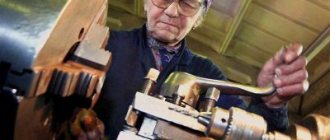Employer's rights
The list of employer rights contains the norms of his behavior with employees. They can be divided into three groups according to the type of relationship:
- employer and individual employee;
- employer and workforce;
- between different employers.
In relation to a specific employee, the employer can:
- hire and fire by concluding and terminating employment contracts;
- demand from hired persons compliance with discipline, performance of duties in accordance with the employment contract and careful attitude towards material assets;
- encourage employees by any means (material and moral) for conscientious performance of duties;
- apply penalties to violators in material terms or in a disciplinary manner.
In relation to the team, the employer has the right:
- conclude collective agreements bilaterally;
- adopt collective acts of local significance;
- organize collective bargaining;
- create works councils;
- carry out an assessment of the conditions that exist at work places.
Rights are also defined that relate to relationships between employers, and consist of the provided opportunity to create or represent in associations of employers to protect their interests.
Almost every paragraph of Article 22 defines restrictions on the rights of the employer within the framework of the labor code or other laws at the federal level.
Employee rights in case of delay in payment
If the employer delays wages, the employee has the right:
- receive compensation for its delay;
- stop working if the employer delayed wages for more than 15 days, and receive the average earnings for the period when the employee suspended work;
- receive compensation for moral damage caused by delayed wages.
This follows from Articles 142, 236 and 237 of the Labor Code of the Russian Federation and paragraph 63 of the Resolution of the Plenum of the Supreme Court of the Russian Federation dated March 17, 2004 No. 2.
Such rights arise regardless of the amount of debt and the guilt (lack of guilt) of the employer (clause 57 of the resolution of the Plenum of the Supreme Court of the Russian Federation of March 17, 2004 No. 2).
Before stopping work (if wages are delayed for more than 15 days), the employee must notify the employer (the head of the organization or the entrepreneur) about this in writing. After which, absence from the workplace will not be considered a violation (part 3 of article 142 of the Labor Code of the Russian Federation, paragraph 57 of the resolution of the Plenum of the Supreme Court of the Russian Federation of March 17, 2004 No. 2). The maximum period of termination of work is until the debt is fully repaid.
Attention: Article 142 of the Labor Code of the Russian Federation establishes a list of cases when stopping work due to delayed wages is prohibited.You cannot pause work:
|
The next day after the employer notifies the employee in writing that he is ready to repay the debt, the employee must go to work. In this case, the salary debt must be paid on the day you return to work.
Such conditions are provided for in Article 142 of the Labor Code of the Russian Federation.
Situation: how is the employer notified of the suspension of work if wages are delayed for more than 15 daysThe employer must be notified of the suspension of work in writing. However, the form of notification is not established by law. Therefore, such a document is drawn up in any form. This follows from Article 142 of the Labor Code of the Russian Federation. |
Situation: is it possible to receive compensation for late payment of wages if it is delayed due to the fault of the bank and not the employer?Yes, you can. The employer (organization or entrepreneur) is obliged to pay compensation for late payment of wages. Moreover, such an obligation does not depend on the presence of the employer’s fault. Such rules are established by Article 236 of the Labor Code of the Russian Federation. This is confirmed by paragraph 55 of the resolution of the Plenum of the Supreme Court of the Russian Federation dated March 17, 2004 No. 2. |
Situation: how should an employer pay for working time if a person stops working due to delayed wagesAccording to experts from the Russian Ministry of Labor, during the period during which work was stopped, a person is entitled to average earnings. If the employer does not pay wages for more than 15 days, the person has the right to stop working by notifying the organization in writing (Part 2 of Article 142 of the Labor Code of the Russian Federation). There are no special rules for paying for such time. Likewise, the employer’s obligation to pay for the time of suspension of work due to delayed payment of wages has not been established. However, specialists from the Russian Ministry of Labor, in letter No. 14-2-337 dated December 25, 2013, insist that in such a situation the organization must pay the employee the average salary. |
Situation: is it possible to demand, simultaneously with compensation for late wages, compensation for losses associated with inflation during the period of delay (wage indexation)Yes, you can. Receiving compensation for late payment of wages does not deprive a person of the right to claim compensation for losses associated with inflation. But to satisfy such demands you will have to go to court. Such clarifications were given by the Plenum of the Supreme Court of the Russian Federation in paragraph 55 of Resolution No. 2 of March 17, 2004. |
Employer Responsibilities
The basic rights and responsibilities of the employer are defined as corresponding to the rights and responsibilities of employees, and are mostly devoted to the protection of these rights.
All responsibilities can be divided into three groups, namely, those that relate to individual employees, work collectives and government bodies.
In relation to the state, the employer is obliged:
- comply with legal labor standards;
- comply with the instructions of federal regulatory authorities that monitor compliance with labor laws.
Responsibilities to the workforce and individuals are as follows:
- provide work, as well as everything necessary for its implementation;
- pay wages on time and in full, observing the principle of equal pay for work of equal value, as well as provide social insurance for each employee;
- organize conditions for labor protection at the level of state standards, as well as pay compensation to employees for damage to health within the framework of legislative acts;
- sign collective agreements regulating labor relations in the team;
- familiarize employees with local acts (orders, regulations, rules, etc.) against signature;
- involve workers in participation in management, including the protection of their interests within the framework of labor legislation.
For violation of these duties, various types of punishment are provided in the form of fines, dismissal from office and prohibition from working as a manager.
Salary payment terms
The payment terms must be specified in one of the internal documents:
- in a collective or labor agreement;
- Labor regulations.
If the established payment day coincides with a weekend or non-working holiday, the salary must be issued on the eve of this day.
The employer must pay vacation pay three days before the start of the vacation.
This procedure is established in Article 136 of the Labor Code of the Russian Federation.
Situation: does the employer have the right to pay wages once a month (if employees write a statement about this)No, you have no right. Article 136 of the Labor Code of the Russian Federation provides for the obligation of the employer (organization or entrepreneur) to pay wages at least twice a month. However, the legislation does not provide for any exceptions in which the employer can do this once a month. Thus, even if there is an application from an employee, payment of wages once a month is a violation and is regarded as untimely issuance (delay) of wages. A similar position is contained in the letter of Rostrud dated March 1, 2007 No. 472-6-0. |
Situation: is failure to pay an advance a delay in payment of wages?Yes it is. If the employer (organization or entrepreneur) does not issue an advance, then he untimely pays one of the two mandatory parts of the salary (Article 136 of the Labor Code of the Russian Federation). Therefore, failure to pay an advance is a delay in payment of wages and entails the same liability as for late payment of wages. |
Association of employers
To expand the powers of business structures in managing the country's economy, such forms as associations of employers are provided.
These associations take measures to coordinate the positions of participants, protect their interests, interact with other similar associations, as well as establish relations with state and local authorities, trade unions and labor collectives.
Employers' associations have the right to take initiatives to develop new laws, consult with various bodies and receive from them information that is necessary for the activities of the associations and their members.
Author of the article
Where can an employee turn if payments are delayed?
If the employer does not pay wages and (or) compensation for its delay voluntarily, the person has the right to apply to the following authorities: his trade union organization or the labor dispute commission (if they are created at the person’s place of work);
- labor inspection;
- court;
- prosecutor's office
This follows from articles 352, 353, 381, 382 of the Labor Code of the Russian Federation and articles 21, 26, 27 of the Law of January 17, 1992 No. 2202-1.
Contacting the labor inspectorate
The labor inspectorate monitors whether the employer complies with labor legislation (Article 356 of the Labor Code of the Russian Federation). At the same time, at the request of the applicant, labor inspectorate employees are obliged not to disclose information about the person who notified them of the violation (Part 2 of Article 358 of the Labor Code of the Russian Federation).
In order to report to the labor inspectorate about the employer’s violation of the deadlines for paying wages, an application is submitted in the form approved by Order of the Ministry of Labor of Russia dated September 3, 2014 No. 603n (Article 356 of the Labor Code of the Russian Federation). The application can be submitted in person, sent by mail or courier. You can also fill out an electronic application form on the official website of Rostrud (clause 4 of the Administrative Regulations, approved by Order of the Ministry of Labor of Russia dated September 3, 2014 No. 603n).
| Advice to employees: before submitting an application to the labor inspectorate, write a letter addressed to the head of the organization (entrepreneur). In the letter, ask to explain the reasons for the delay in wages and indicate the period for repayment of the debt. Compose the letter in two copies and register it as an incoming document. Keep one copy with a receipt stamp for your records. Attach this letter with a response (or without it) to your application to the labor inspectorate. If in the future there is a need to go to court, this document can also be attached to the statement of claim. |
The labor inspectorate considers written requests from citizens about violations of their labor rights within 30 days from the date of their registration (Article 356 of the Labor Code of the Russian Federation, Part 1, Article 12 of the Law of May 2, 2006 No. 59-FZ).
Based on the results of the inspection, the labor inspectorate has the right to issue an order to the employer to eliminate identified violations of labor legislation (Article 357 of the Labor Code of the Russian Federation). Also, labor inspectors have the right to apply penalties provided for by law for violators, or transfer information to other departments (Articles 356, 365 of the Labor Code of the Russian Federation). For example, to the prosecutor's office.
Going to court
If an appeal to the labor inspectorate does not produce results, apply to the court for recovery of compensation (clause 55 of the resolution of the Plenum of the Supreme Court of the Russian Federation dated March 17, 2004 No. 2).
A statement of claim for labor disputes is filed at the location of the employing organization (residence of the entrepreneur) (Article 28 of the Code of Civil Procedure of the Russian Federation).
In this case, you will not have to pay state fees and court costs (subclause 1, clause 1, article 333.36 of the Tax Code of the Russian Federation).
Attention: you must go to court to recover compensation within three months from the day the employer violated the deadline for paying wages. Otherwise, the court may refuse to consider the case.If the three-month period is missed for a good reason (for example, due to a long-term serious illness), the court may extend it and accept the claim for consideration. This procedure is established by part 1 of article 392 of the Labor Code of the Russian Federation. |
Employer bankruptcy claim
In addition to the above, if the employer is overdue for three months, the employee has the right to apply to the court to declare him bankrupt. Even if this employer is former and the employee no longer works for him. This allows you to receive at least part of the salary arrears when the organization does not have money in its account. After all, during the bankruptcy process, the debtor’s property is sold, and the proceeds are used to pay off claims. All this follows from paragraph 2 of Article 3, paragraph 1 of Article 7 and Article 139 of the Law of October 26, 2002 No. 127-FZ.
The application can be submitted either individually or in association with other employees whose salaries were also delayed (clause 5 of Article 39 of the Law of October 26, 2002 No. 127-FZ). Moreover, you will not have to pay state fees and court costs (clause 2 of article 20.7, clauses 1 and 3 of article 59 of the Law of October 26, 2002 No. 127-FZ).
You can file a bankruptcy petition with the court from the date of entry into force of the court decision to collect wage arrears from the employer (Clause 2 of Article 7 of the Law of October 26, 2002 No. 127-FZ). That is, first you need to file a statement with the court that the employer is delaying wages, and obtain a court decision on this matter. And after it comes into force, file an application to declare the employer bankrupt.
Before the bankruptcy court hearing begins, the bankruptcy trustee will hold a meeting with employees. At this stage, creditors choose a representative and discuss their claims, which the arbitration manager will eventually include in the general register of creditors’ claims. This is stated in Article 12.1 of the Law of October 26, 2002 No. 127-FZ.
When the court declares the organization bankrupt, the demands for payment of arrears of wages will be satisfied in the second place (clause 2 of Article 134 of the Law of October 26, 2002 No. 127-FZ). And here there is a limitation - no more than 30,000 rubles. for every month. But if the debtor has enough money, they will pay off the remaining debt. This follows from paragraph 5 of Article 136 of the Law of October 26, 2002 No. 127-FZ.
If another creditor has already filed for bankruptcy
If another creditor (for example, another employee) has already filed for bankruptcy, you will not need an initial judgment to collect back wages. You will simply need to include your claims in the register of creditors' claims (Clause 6, Article 16 of Law No. 127-FZ of October 26, 2002). But if the employer disputes the amount of debt, a court decision is required that establishes the composition and amount of the claims. The rest of the order is the same.
Contacting the prosecutor's office
For the protection of their rights (including labor rights), a person has the right to apply to the prosecutor’s office (Article 27 of the Law of January 17, 1992 No. 2202-1, Part 1 of Article 45 of the Code of Civil Procedure of the Russian Federation). To do this, he must draw up an appeal (application, complaint) in any form. The prosecutor who has received the application (complaint) takes measures to eliminate human rights violations (Clause 1 of Article 27 of the Law of January 17, 1992 No. 2202-1). The powers of the prosecutor include preparing a statement of claim and going to court (clause 4 of article 27 of the Law of January 17, 1992 No. 2202-1, part 3 of article 131 of the Code of Civil Procedure of the Russian Federation).








